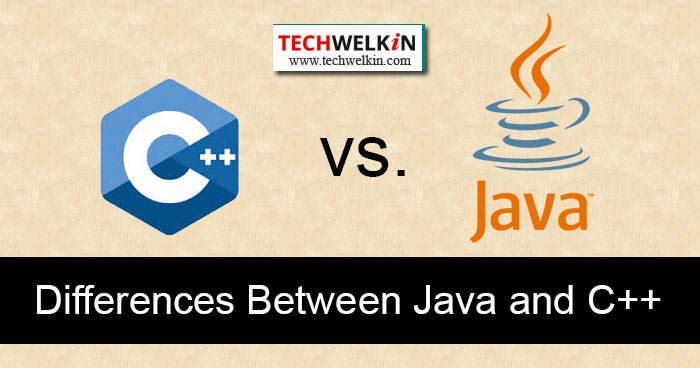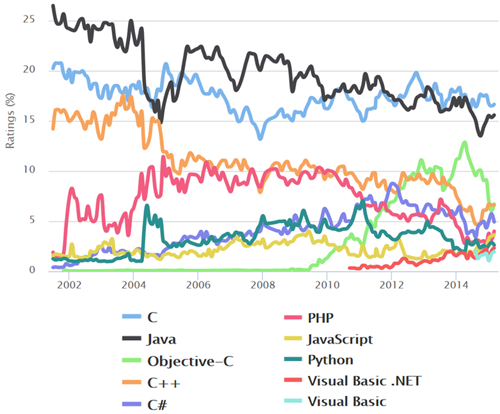Differences Between Java and C++
Java language was developed by James Gosling to be a general-purpose, concurrent, class-based, object-oriented programming language. Java inherits its syntax from C language and structure from C++ language. The biggest difference between Java and C++ is how a program runs in these languages. While C++ program runs as executable native machine code; a Java program runs in a Java Virtual Machine (JVM). This clever idea of creating and using a virtual machine to run Java programs revolutionized the computer programing. This idea made Java programs machine independent while C++ programs could run only on machine they were designed for.
Memory management and exception handling are also very important aspects wherein Java and C++ differ. C++ programs were considered a bit unreliable because of the way C++ handled exceptions and memory. Java tried to solve these problems by better defining how exceptions should be dealt with and how the memory used by program is managed.
Table of Differences Between Java and C++
The following table lists the main differences between C++ and Java. Both Java and C++ programming languages have had a massive impact on the system and application development. Both languages are still among to most popular choices made the computer programmers around the world. It’s almost poetic how C evolved into C++ and then C++ evolved into Java. We hope that this article on the differences between Java and C++ was useful for you. Please feel free to share your questions, comments and suggestions in the comments section below. Thank you for using TechWelkin! Comment * Name * Email * Website
Δ


